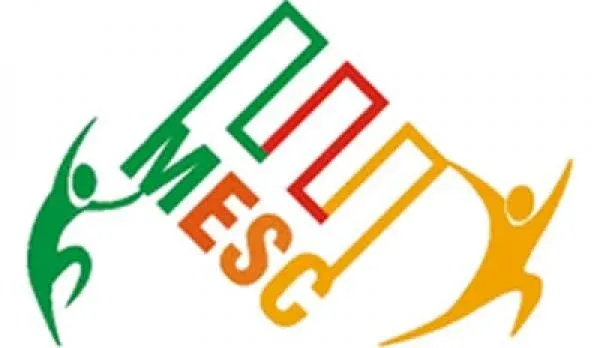Diploma in Sound Engineering
April 26, 2024 2025-01-06 12:58Diploma in Sound Engineering
Diploma in Sound Engineering
UGC Approved Courses
Top Instructors
In Campus Placements
We take pride in being pioneers in India, providing a Diploma in Sound Engineering
Placement Record
Average LPA
Alumini Network
Course Highlight
- Expert Faculty: Learn from experienced sound engineers and industry professionals.
- State-of-the-Art Equipment: Hands-on training with professional audio gear.
- Comprehensive Curriculum: Covers studio, live sound, and multimedia audio.
- Portfolio Development: Work on projects to showcase your technical and creative skills.
- Live Sound Training: Gain practical experience in concerts and event setups.
- Creative Sound Design: Learn advanced techniques for film and game audio.
- Collaborative Projects: Work with artists and producers in real-world settings.
- Music Industry Insights: Understand the business side of audio production.
- Certification: Receive a recognized diploma upon successful completion.
- Career Preparation: Build the skills needed to succeed as a professional sound engineer.
What You will Learn?
- Fundamentals of audio engineering, including acoustics and signal flow.
- Recording techniques for vocals, instruments, and full ensembles.
- Mixing techniques to balance and enhance audio tracks.
- Mastering processes for finalizing tracks to industry standards.
- Microphone placement and selection for optimal sound capture.
- DAW proficiency in software such as Pro Tools, Logic Pro, and Ableton Live.
- Live sound engineering, including PA systems and stage monitoring.
- Sound design for multimedia, including Foley and post-production audio.
- Studio design and setup for professional recording environments.
- Audio file management and production workflows.
Pre-Requisites
- Passion for Audio: A strong interest in sound and its applications.
- Basic Computer Skills: Familiarity with using computers and basic software.
- Equipment Access (Optional): A computer and headphones for practice outside of class.
- Commitment to Learning: Dedication to mastering technical and creative skills.
- Age Requirement: Open to all age groups
Why us?
Small Batch strength
Limited to 4 students per batch for personalized attention and tailored instruction.
Free access to Studio
Enjoy complimentary access to our professional recording studio to hone your recording skills.
Expert Faculties
Learn from experienced and highly qualified instructors with extensive industry experience.
International Grading System
Benefit from a globally recognized grading system to track and showcase your progress.
Collaboration with Industry Professionals
Gain opportunities through our connections with record labels, event managers, and artist managers.
Free Practice Rooms
Book practice rooms at no additional cost to facilitate uninterrupted practice and rehearsal.
| Course Name | Semester | Fees | Days | Batch Strength |
|---|---|---|---|---|
| Sound Engineering Diploma | 2 | 1,95,000 + 1000 Registration | 4 days a week | 4 students in a batch |
Our Affiliations





Why we are known for the Best Music College in India?

Pranay Kumawat
Music Producer
Ishita Parakh
Singer- Songwriter
Heena Gupta
SingerFAQ
1. What is a Diploma in Sound Engineering?
A Diploma in Sound Engineering is a comprehensive program that provides students with theoretical knowledge and practical skills in audio production, recording, mixing, and mastering. It typically spans one year and prepares individuals for careers in the audio industry.
2. What will I learn in a Diploma in Sound Engineering program?
In a Diploma in Sound Engineering program, you will learn fundamental principles of sound, acoustics, audio equipment operation, digital audio workstations (DAWs), recording techniques, mixing, mastering, and post-production. The curriculum covers both theoretical concepts and hands-on experience.
3. How long does it take to complete a Diploma in Sound Engineering?
A Diploma in Sound Engineering is usually a one-year program, although the duration may vary depending on the institution and the specific curriculum offered.
4. What are the career opportunities after completing a Diploma in Sound Engineering?
Graduates of a Diploma in Sound Engineering program can pursue various career paths, including recording engineer, mixing engineer, mastering engineer, live sound engineer, post-production sound technician, music producer, sound designer, studio technician, acoustic consultant, and more.
5. Is prior experience or knowledge in sound engineering required to enroll in a Diploma in Sound Engineering program?
While some programs may prefer applicants with a background in music or audio production, many Diploma in Sound Engineering programs accept students with diverse educational backgrounds. However, a passion for sound and music, as well as a willingness to learn and experiment, are essential qualities for success in the program.
6. What equipment and software will I have access to during the program?
Diploma in Sound Engineering programs typically provide access to professional audio equipment, including microphones, audio interfaces, mixing consoles, and studio monitors. Students also have the opportunity to work with industry-standard software such as Pro Tools, Logic Pro, Ableton Live, and Adobe Audition.
7. Will I have opportunities for hands-on experience and practical training?
Yes, hands-on experience is a crucial component of most Diploma in Sound Engineering programs. Students participate in recording sessions, mixing exercises, mastering projects, and live sound productions to apply theoretical knowledge in real-world scenarios and build their skills.
8. Can I pursue further education or specialization after completing a Diploma in Sound Engineering?
Yes, graduates of a Diploma in Sound Engineering program may choose to pursue further education, such as a bachelor’s degree in audio engineering, music production, or related fields. Additionally, professionals can pursue specialized certifications or advanced training in specific areas of audio engineering to enhance their skills and career prospects.
9. How do I apply for a Diploma in Sound Engineering program?
To apply for a Diploma in Sound Engineering program, you typically need to submit an application form, academic transcripts, letters of recommendation, a personal statement, and sometimes a portfolio of your work (if applicable). Check the admission requirements and application process of the specific institution offering the program.
10. What are the advantages of earning a Diploma in Sound Engineering?
Earning a Diploma in Sound Engineering equips you with the technical skills, industry knowledge, and practical experience needed to pursue a rewarding career in the audio industry. Whether you aspire to work in music production, film, television, gaming, or live events, a diploma in sound engineering opens up diverse opportunities for creative and professional growth.
Explore All Courses
Choose from more than 20+ options in music & technology.
